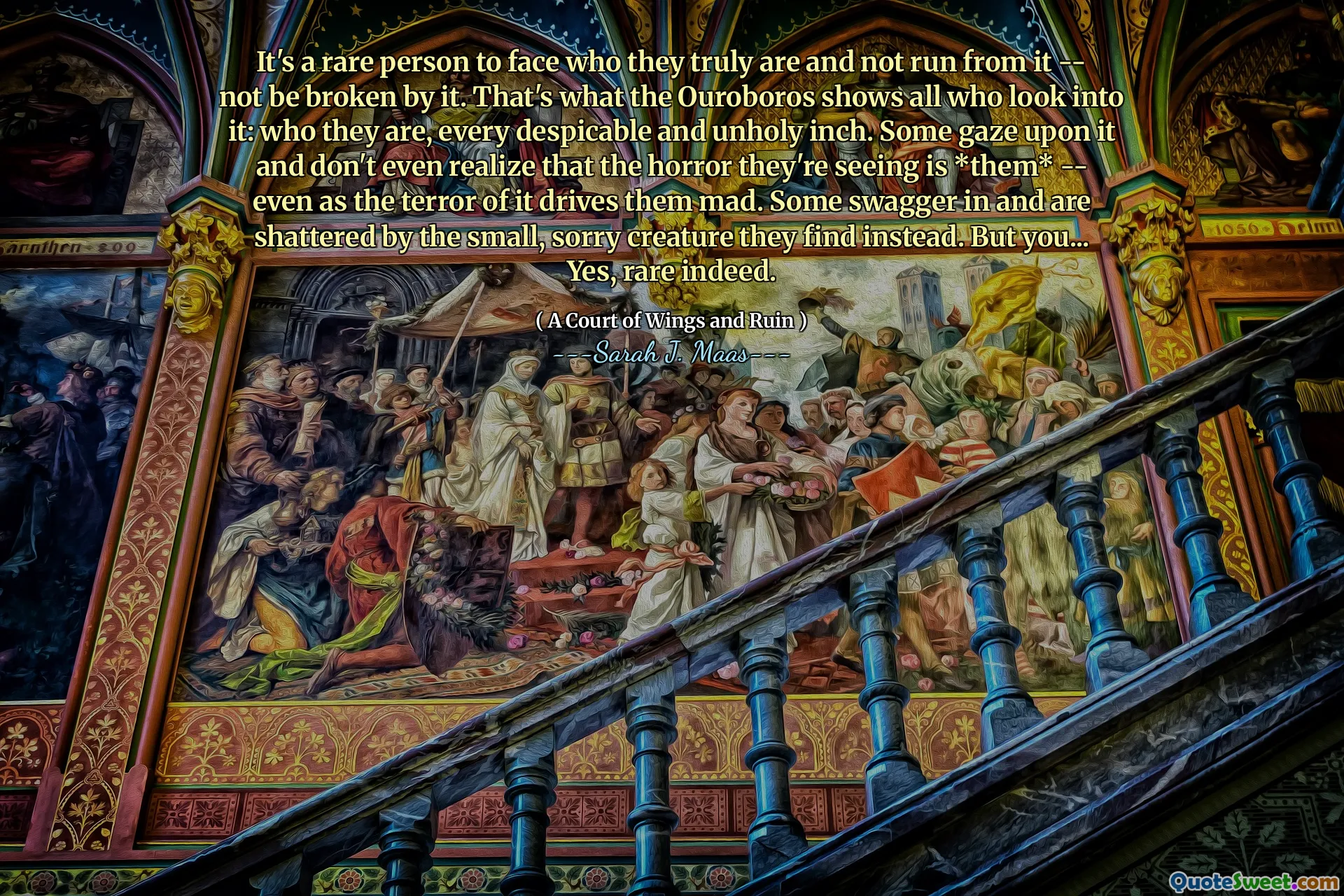
It's a rare person to face who they truly are and not run from it -- not be broken by it. That's what the Ouroboros shows all who look into it: who they are, every despicable and unholy inch. Some gaze upon it and don't even realize that the horror they're seeing is *them* -- even as the terror of it drives them mad. Some swagger in and are shattered by the small, sorry creature they find instead. But you... Yes, rare indeed.
This quote delves into the complex nature of self-awareness and acceptance. It highlights the rarity of individuals willing to confront their deepest, often darkest selves without retreat or denial. The Ouroboros, a symbol of eternity and cyclical self-destruction, serves as a powerful metaphor for introspection. When gazing into this symbol, one witnesses every facet of their being, including the repulsive and unholy aspects that society commonly shuns or suppresses. The reaction to this revelation varies widely—some individuals are oblivious to the horror, perhaps indicating a lack of true self-awareness or a disconnection from their inner selves. Others recognize the darkness and are driven to madness by such knowledge, overwhelmed by the weight of their flaws and sins. Then there are those who venture into this self-examination and emerge with a humbling realization—what they find might be a tiny, pathetic creature rather than a monstrous figure, suggesting that what we often fear most is not ourselves, but what we perceive ourselves to be or fear becoming. The closing emphasis on the rarity of the true who can face themselves and remain intact reminds us that self-acceptance and honesty are uncommon virtues, yet essential for genuine growth and understanding. This quote provokes reflection on the courage needed to confront one's own imperfections and the humility required to accept them, challenging us to be unflinching in our self-assessment and compassionate in our acceptance of our flawed human nature.








